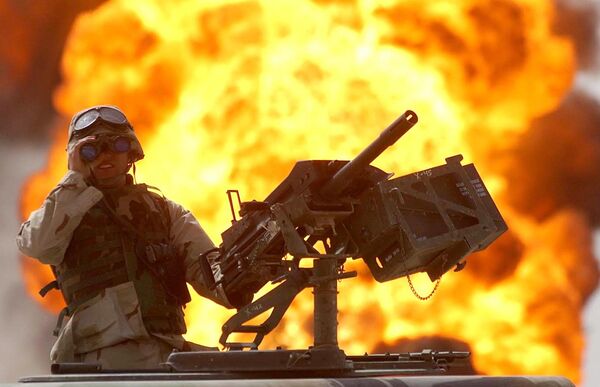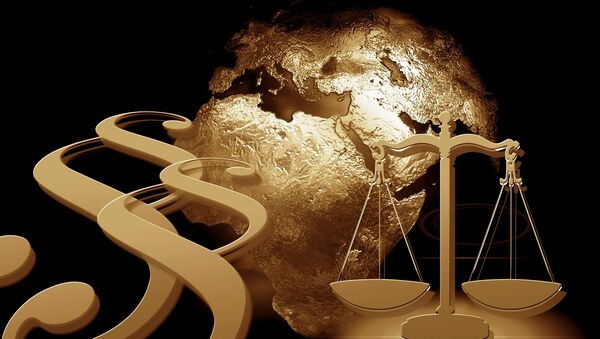Meanwhile, not one western country or leader has been the subject of an ICC investigation. This is inexplicable when we consider that since 2002, the world has witnessed, along with the occupation of Afghanistan, the illegal invasion and occupation of Iraq; the rendition and torture of terrorism suspects under the rubric of the "war on terror"; the incarceration of terrorist suspects without any due or legal process; and regime change in Libya in defiance of the terms of UN Security Council Resolution 1973 to protect civilian life.
Instrument of Neo-Colonial Power?
This is not to suggest that all of the cases that have been investigated or prosecuted by the ICC hitherto should not have been. On the contrary, there have indeed been instances of horrific atrocities and crimes against humanity committed on the African continent in recent times, crimes fully deserving of investigation and where the evidence points, prosecution.
But if the ICC is to avoid the accusation that it has become more an instrument of neo-colonial power rather than a truly impartial international institution, then it cannot merely reflect great power relations and concepts in its application of justice.
This, taking a broader view, exposes the fundamental problem the world currently faces when it comes to international relations, international law, and the application of justice across borders.
It poses the question of whether international law can be objectively interpreted and universally applied regardless of power, or whether it will remain a prisoner of subjective interpretation and a discretionary concept based on power?
Power, Corruption, Universal Concepts
In this regard, we have regressed enormously since the Second World War, when the United Nations was established on the basis of the UN Charter.
Despite its high-minded intent and philosophical foundations, rooted in the universality of international law, we see that in truth it is not the UN that has been the guarantor of peace, security and justice in the world since World War II, it has been the balance of power.
For all the negative aspects of the Cold War, a sustained period of peace and stability between the major powers did ensue from the end of the Second World War and all the way through to the early 1990s, when the Soviet Union came to an end.
Power corrupts and absolute power corrupts absolutely, a truth evident in the triumphalism and hubris that propelled Washington and its allies into the disastrous military interventions in the wake of 9/11.

The world witnessed the kind of unfettered power and aggression which the UN had been set up to constrain.
The simple truth is that the UN, ICC, and other international institutions can only fail to live up to the ideal of universal concepts of international law, norms, and conception of justice when one state, or constellation of states, believes itself to be exempt from the same international laws, legal obligations, and conception of justice that the rest of the world is expected and forced to adhere to.
Punish the Weak, Exonerate the Strong
A world shorn of national exceptionalism, based on the ancient doctrine of might is right, does not exist in the 21st century.
On the contrary, the concept of might is right has never been more entrenched since ancient times, when according to Thucydides in his "History of the Peloponnesian War," the Athenians informed the Melians, prior to invading and destroying them, that the "strong do what they can and the weak suffer what they must."
Who could argue that in the contemporary age, the US and British invasion of Iraq in 2003, after it was reduced to a state of abject poverty and destitution during 13 years of brutal economic sanctions, parallels the treatment of the Melians at the hands of their far more powerful Athenian rival?

Any legal system or institution that exists to punish the weak and exonerate the strong, just by virtue of them being weak or strong, is not one that has been established with justice in mind. Instead, such a system exists to reinforce the imbalance in power and strength that holds between the states over which it exercises jurisdiction.
This is why it is in the interests of the vast majority of states and peoples across the world to reject might is right and the distorting impact it has had on the work of the ICC, UN and every other international institution in our time.
Until we do, we must face the fact that while colonialism may be a thing of the past the idea of colonialism, the colonial worldview, remains very much alive.
The views expressed in this article are solely those of the author and do not necessarily reflect the official position of Sputnik.







